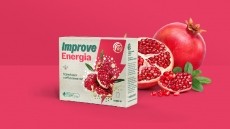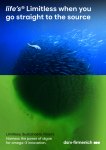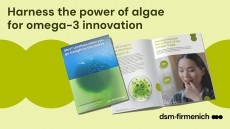DHA revisions offer hope to health claim rejections
At the NutraIngredients Health Claims 2010 conference in Brussels, the EC's Lars Korsholm explained the regulatory state-of-play for DHA claims.
“I think it will offer some hope to previously rejected claims in the sense that these claims that are now subject for discussion are generic in the sense that if other food business operators than those who actually submitted the application can claim to fulfill the conditions of use then they are equally entitled to use the claim,” explains Korsholm.
The statements come in relation to an October decision whereby the European Food Safety Authority (EFSA) affirmed that the omega-3 fatty acids, DHA and ALA, can benefit eye and cognitive development in babies.
Responding to the public comment period for Merck Selbstmedikation GmbH’s article 14 cognitive development claim that was rejected in March, EFSA affirmed its original stance that there was no need for additional supplementation of DHA (docosahexaenoic acid) and ALA (alpha-linolenic acid) because it already existed at adequate levels in the diet.
It supported their role in foetal and newborn eye and brain development but said there was an adequate supply in breast milk.
“DHA has a structural and functional role in the brain and retina and maternal DHA intake can contribute to the early development of the eye and normal cognitive development in the foetus and the brain-fed infant,” wrote Dr Juliane Kleiner, head of EFSA's Panel on Dietetic Products, Nutrition and Allergies (NDA).
But in regard to the need for supplementation she added: “…while DHA can be synthesised in the human body from its precursor essential fatty acid ALA to a certain extent, the human foetus appears to be largely dependent on placental transfer of DHA from the mother derived either from her diet, from synthesis or from stores in adipose tissue. The Panel also noted that most DHA is provided to the breast-fed infant via breast milk in which the DHA concentration is dependent both on maternal dietary intake and maternal DHA stores, while the contribution by synthesis is low.”
“All these factors, and the fact DHA supplementation was administered in most studies in addition to background diets already providing ALA and DHA in unspecified amounts, may have accounted for the insufficient evidence for a causal relationship between maternal supplementation with DHA and visual and cognitive benefits in their offspring.”











